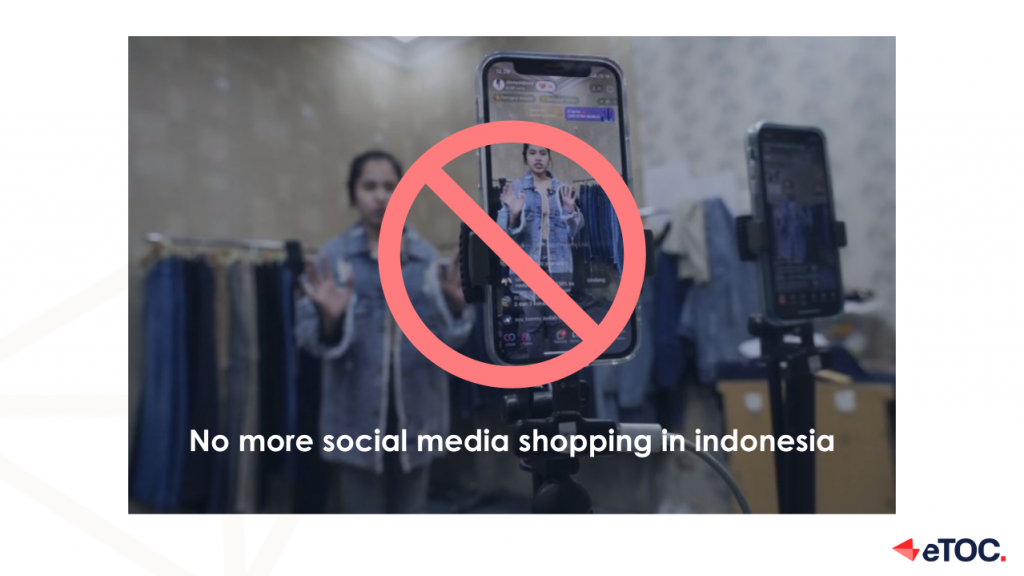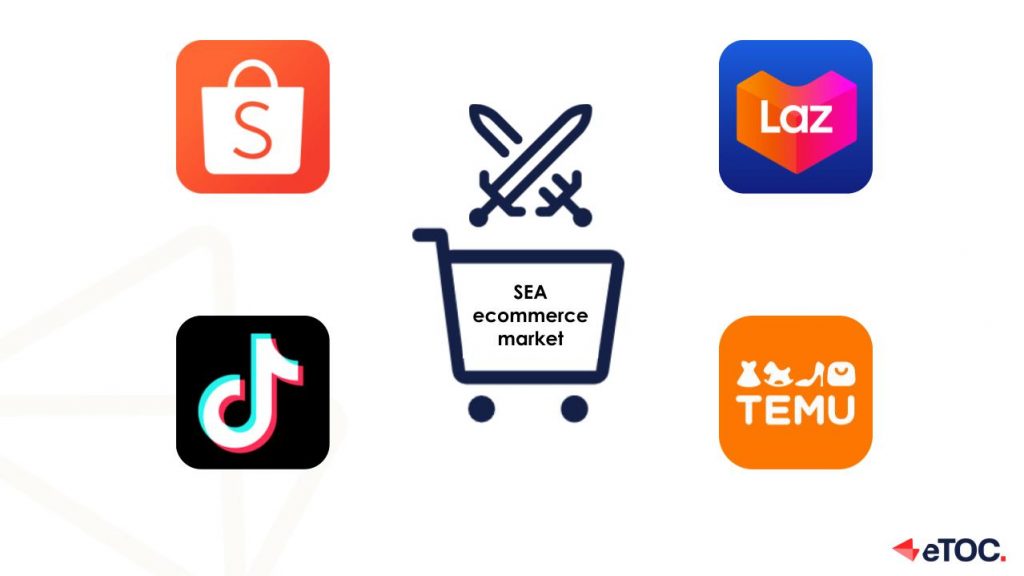Chinese internet companies further intensify competition in Southeast Asian e-commerce market
Forced shut down of TikTok Shop in Indonesia after banned of social media shopping
The Southeast Asian e-commerce battle has reached a crucial juncture.
On September 28, 2023, the Indonesian government released a shocking regulation: It has officially banned social media platforms from conducting e-commerce transactions, restricting their usage to product promotion channels only. This move aims to safeguard local businesses, counter the dominance of algorithms in the market, and prevent the exploitation of personal data for commercial purposes.
This directly impacted TikTok Shop, which has risen strongly in the Indonesian market in recent years, and successfully ranked among the top 5 e-commerce companies in Southeast Asia with a 3-7 times YoY increase in GMV over the past three years. Faced with this significant shift in the external environment, TikTok has expressed its commitment to full cooperation and has planned to swiftly launch an independent e-commerce app.

During the time when TikTok Shop is experiencing ups and downs, the top two e-commerce platforms in Southeast Asia, Shopee and Lazada, are also locked in an intense battle. Meanwhile, TEMU has swiftly entered the Southeast Asian market. An e-commerce showdown instigated by Chinese internet companies is about to unfold.
Shopee felt a serious threat from TikTok, as TikTok adopted the same tactics that Shopee initially used against Lazada
On September 15, 2023, Xiaodong Li, the founder of Shopee’s parent company, Donghai Group, issued an all-staff letter calling on all employees to prepare to enter “full battle mode”. He mentioned that Shopee is facing a strong challenge from its rival and the group will refocus on growth as a key strategic objective, even at a loss.
The rival he was referring to was obviously TikTok.
According to public data, after launching in Indonesia at the beginning of 2021, TikTok Shop achieved a GMV of over $600 million in Southeast Asia that same year. In 2022, this number surged more than 7 times to approximately $4.4 billion. Before the implementation of new e-commerce policies in Indonesia, industry experts estimated that TikTok Shop’s GMV for 2023 could reach around $15 billion.
In fact, TikTok’s rapid growth in such a short period mirrored the strategies that Shopee initially adopted in its competition against Lazada:
- Aggressive subsidies for buyers and sellers:
Shopee applied commission-free approaches to attract long-tail merchants and cooperated with third-party logistics to subsidise shipping to buyers in 2015-2017.
While Indonesia TikTok Shop provided subsidies to sellers in the platform based on reaching the proportion of GMV when the percentage of commission has reached 10% on Shopee. Consumers on the platform also enjoyed the benefits of free shipping and large coupons.
- Low prices with extensive traffic to attract new consumers:
Shopee has been rolling out online and offline advertisements in Southeast Asia, inviting celebrities including Philippine national treasure boxers, Malaysian national singers, as well as top Asian girl groups such as BLACKPINK to endorse the platform. The traffic generated by such a powerful marketing campaign has been taken up by the many low-priced products on the platform.
Similarly, the APP TikTok itself, which enjoyed nearly 100 million users in Indonesia, responded by launching TikTok Shop. In conjunction with the rapid rise of the live commerce mode driven by the impact of the pandemic, it swiftly attracted a large number of consumers to the platform.
However, it is precisely because of Shopee’s long-term strategy of indiscriminate spending to expand that has led to sustained financial losses, capital questioning, and abandonment. This forced Xiaodong Li to break free from reliance on capital and, instead, help the company achieve self-sufficient breakeven by reducing various operating costs, including layoffs, reducing or cutting subsidies, postage and marketing expenses and increasing merchant commission rates.
As a result, Shopee’s forced adjustments have provided an excellent opportunity for TikTok Shop to thrive in Southeast Asia.
The ban on social media shopping introduced new uncertainties for e-commerce competition in Southeast Asia



Singapore consultancy Momentum Works predicted TikTok Shop’s market share in Indonesia will jump from 4.4% to 13.2%, which is about to approach 1/3 of Shopee’s GMV.
After the regulations banning social media shopping in Indonesia, TikTok was forced to compete on the same level as platforms like Shopee and Lazada. This is evidenced by the failure of Douyin’s attempt to create an independent e-commerce app. The conversion rate of cross-platform traffic acquisition consistently lags behind the closed conversion path within a platform.
Meanwhile, 6 million merchants on TikTok Shop are incredibly anxious and irritated. With the rising cost of market entry and the platform being shut down, the only way for current sellers to minimise their losses is to find a new sales channel in the shortest possible time.
Shopee and Lazada are undoubtedly their best choices. Lazada has customised migration solution for sellers: It waived the fees associated with sellers live-streaming on the platform since October 3, 2023, resulting in constant attracting sellers to enter it.
Due to the internal management mistakes of Lazada in the early years of the acquisition by Ali led to Shopee catching up. Nevertheless, with subsequent team restructuring, business optimization, and several capital injections from Alibaba, this former Southeast Asian e-commerce competitor is making a comeback on the battlefield.
Finally, one of the most promising competitors, TEMU, which has already demonstrated impressive performance in the North American market and has consistently set its sights on the Southeast Asia market, entered the battlefield by expanding into the Philippines and Malaysia in August and September this year, respectively. These are also major markets for Shopee and Lazada.
In conclusion, the Southeast Asian e-commerce market is currently in an unprecedentedly competitive landscape, and it is still unknown who the final winner will be.
Want to expand to the APAC market? Contact us for a first free consultation.
